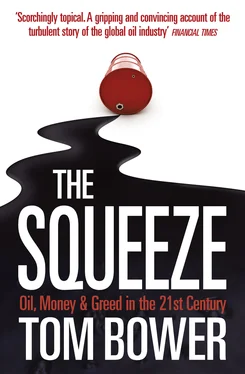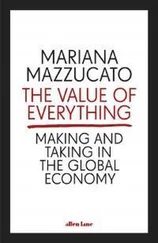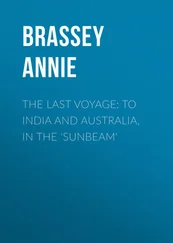Oil compounded the political pandemonium of Yeltsin’s inheritance. Laws were drafted to privatise state-controlled industries and property, but the first stage of dismantling the Soviet command economy was the overnight abolition of import controls on 2 January 1992 by Yegor Gaidar, the acting prime minister. Russia’s oil production fell to 7.5 million barrels a day, inflation rose to 740 per cent, and Russia’s bureaucracy was fragmenting as Gaidar, anticipating a counter-attack by the communists entrenched in the bureaucracy, decided to privatise Russia’s industries by giving stocks and shares to the managers and workers. In the oilfields, the managers, ignoring orders and laws, lost any incentive to maintain production, and seized their opportunity to grab the spoils. Yeltsin’s dilemma was profound. Russia’s economy was based on cheap oil, up to 47 per cent of which was regularly wasted during generation and heating. Although the government had increased the price paid for oil from 2 cents to 48 cents a barrel, the same oil was being resold in New York for $19 a barrel. In an unruly economy, Yeltsin’s officials were powerless to order local bosses to pay the oil workers, or to direct that oil be supplied to the refineries, or to command the oilfields to hand over the dollars earned from exports. While petrol was being sold in Moscow in vodka bottles and refineries were limiting production, Yeltsin floundered, issuing ineffectual decrees asserting state control over oil and gas production and exports. On the brink of complete breakdown, the state was even short of sufficient dollars to hire American specialists to seal a huge blowout of a well in Mingbulak in Uzbekistan. Almost 150,000 barrels of oil had been burning every day since 2 March, but news of the inferno only reached Moscow at the end of April. Alarmed by the chaos, in April 1992 Loïk Le Floch-Prigent commissioned a newspaper campaign in Moscow to persuade Russians to pull back from the brink of disaster and trust Elf. His appeal was ignored. On 18 May 1992, to dissuade oil workers from striking, the Kremlin shipped trainloads of roubles to western Siberia to pay wages and raised the price paid to the producers to $3 a barrel.
In late December 1991, the Soviet Union split into 15 independent states. The rulers of Kazakhstan, Azerbaijan and Turkmenistan, determined to keep all the profits from their oil and gas, voiced their historic antagonism towards Russia. In Russia itself the managers of the oilfields also dug in, withholding supplies. Caught in the middle of the political battle, Western oil executives became perturbed. Despite their enthusiasm to develop Russia’s riches, the country’s officials were uncertain about their own authority and were powerless to remedy the absence of laws, valuations, taxes and balance sheets as understood in the West. The oil executives’ requests for enforceable contracts and proper accounting to safeguard their investment were met by blank stares, while their intention to earn profits aroused resentment. In that atmosphere, the oil majors reconsidered the risk of investment. ‘When we make multi-billion-dollar decisions,’ said John O’Connor of Mobil, pondering whether to develop oilfields in northern Siberia, ‘you have to have confidence that the system is predictable and stable. All these things are absent.’
By September 1992, paralysis gripped the Russian oil industry. Twenty-five thousand out of 90,000 oil wells had been closed. In the Kremlin, Viktor Orlov, a former natural resources minister and chairman of the government’s oil committee, warned Yeltsin about ‘very irrational and wasteful’ management of the Siberian oilfields. Russia’s production, he suggested, could fall to six million barrels a day, only just over half the rate in 1988. At the beginning of 1993 the forecast worsened. During a meeting in the Kremlin in April, Vladimir Medvedev, the president of the union of oilmen, told Yeltsin, ‘The crisis is deteriorating into a catastrophe.’ With 20 per cent of Russia’s oil wells idle, production could fall in 1995 to four million barrels a day, a million less than the country consumed. Yeltsin’s dilemma appeared insoluble. The country was beset by inflation, unpaid bills, unpaid workers, an unstable rouble and crumbling infrastructure in the oilfields. With Moscow and the provinces disputing each other’s authority, Siberian oil companies were illegally exporting their production, and Russian customers were not paying for their supplies. To increase output by just one million barrels a day, Yeltsin was told, would cost $15 billion. Restoring production to 11 million barrels a day to sustain the country’s foreign earnings would cost over $50 billion and would require Western expertise. Not only was that amount unaffordable, Yeltsin knew, but the country was divided over whether to admit foreign investment. Even part privatisation required the removal of political and legal uncertainties over the ownership of resources. Yeltsin was incapable of resolving that conundrum. ‘Russia has been a big disappointment for many people,’ said Elf’s spokesman in Volgograd. ‘At first people thought it might be the new Middle East.’ In the five years since Russia had opened its doors, the foreign rush had become bogged down by the Duma’s indecision, changing laws and taxes. Oil men were accustomed to problems, and could console themselves with the truism, ‘This is where the oil is,’ but none had anticipated being stymied by three straightforward deals which unexpectedly antagonised Russian sentiment.
In 1992, Marathon Oil signed an initial agreement with government officials in Moscow to exploit the oil and gas on a territory known as Sakhalin 2, a frozen island in the Pacific Ocean, 6,472 miles and seven time zones from Moscow. In the tsarist era, criminals were sent into exile on Sakhalin, and in 1983 MiG fighters flew from the island to shoot down KAL 007, a Korean passenger plane. Across that bleak 28,000-square-mile shelf in the Sea of Okhotsk, oil production was possible only during the summer. Between October and June, storms, strong currents and seven-foot-thick ice packs prevented work.
Oil had been produced onshore since 1923. In 1975, assured by the Russian government that there were between 28 and 36 billion barrels of oil under the sea, a Japanese company drilled some wells, but lacking expertise and money, its quest was soon terminated. A second agreement with another Japanese exploration company in 1976 ended in the early 1980s after the Japanese concluded that the venture was uneconomic. In November 1991, anxious to exploit the reserves, the Russian government issued an invitation to major Western oil companies to tender for a licence. Most were interested, but nearly all became deterred by Russian politics. Valentin Fyodorov, the governor of Sakhalin, demanded that the successful company lend his region $15 billion to develop the infrastructure for a new republic. Reluctantly, some companies agreed, only to become involved in an intense debate in Moscow about whether foreign exploitation of Russian energy should be permitted. Some Russian politicians rejected outright any sale, some opposed catering to Fyodorov’s audacious demands, while others argued that, in the midst of its current financial crisis, Russia had no alternative but to sell its mineral wealth for hard currency.
Eventually, in April 1992, Marathon, in partnership with the Japanese company Mitsui, was allowed to start a feasibility study. Soon after, Mobil and Shell were inserted into the consortium as junior partners. To protect its investment from Russia’s punitive tax regime, Marathon negotiated over the following two years a Private Sharing Agreement (PSA) with the Russian government, giving the Americans a majority stake in the $4 billion venture and excluding any Russian participation. The PSA fixed unchangeable terms for the taxes and royalties payable by Marathon throughout the project’s life. After the agreement was signed in 1994, Russian legislators, officials and ministers, realising that Russia would receive little income from the sale of its own oil until all the costs incurred by Marathon to develop the project had been repaid, began arguing with officials in Moscow’s oil, geology and finance ministries. Marathon anticipated making tax-free profits for 25 years before Russia earned anything. To protect its hugely favourable agreement, Marathon had successfully insisted that any dispute was subject to international arbitration rather than the Russian courts. The Russian negotiators, failing to hire Western bankers and lawyers as advisers, had unquestioningly accepted Marathon’s terms, and were ridiculed for gullibly falling into an American trap to profit from Russian oil. The critics ignored reality. Russia was technically incapable of producing oil in Sakhalin, and without a PSA agreement, no Western oil company could risk developing the island’s reserves. Those arguments eventually prevailed, and Marathon’s deal was approved by the Duma.
Читать дальше











![John Bruce - The Lettsomian Lectures on Diseases and Disorders of the Heart and Arteries in Middle and Advanced Life [1900-1901]](/books/749387/john-bruce-the-lettsomian-lectures-on-diseases-and-disorders-of-the-heart-and-arteries-in-middle-and-advanced-life-1900-1901-thumb.webp)
